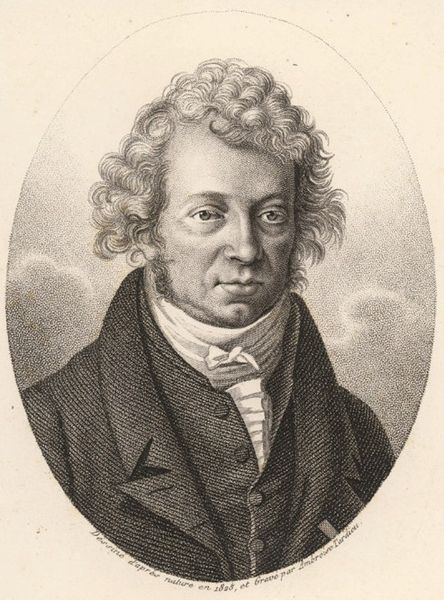- they have a separate DB entry for everything in the page, e.g. even list items. A little bit like OurBigBook dynamic tree but way more blocks
- they use PostgreSQL of course
The key advantages of lasers over other light sources are:
- lasers emit a narrow spectrum
- it can be efficient collimated, while still emitting a lot of output power: Section "Why can't you collimate incoherent light as well as a laser?"
- can be phase and polarization coherent, though it is not always the case? TODO.
One cool thing about lasers is that they rely on one specific atomic energy level transition to produce light. This is why they are able to to be so monchromatic. Compare this to:As such, lasers manage to largely overcome "temperature distribution-like" effects that create wider wave spectrum
- incandescent bulbs: wide black-body radiation spectrum
- LED: has a wider spectrum fundamentally related to an energy distribution, related: Why aren't LEDs monochromatic
- TODO think a bit about fluorescent lamps. These also rely on atomic energy transitions, but many of them are present at once, which makes the spectrum very noisy. But would individual lines be very narrow?
Crazy difference between 5W laser and 5W LED by Brainiac75
. Source. Baseic but good. Uses a laser photometer.en.wikipedia.org/w/index.php?title=Andr%C3%A9-Marie_Amp%C3%A8re&oldid=1211946256:TODO find the source for this.
Jean-Jacques Ampère, a successful merchant, was an admirer of the philosophy of Jean-Jacques Rousseau, whose theories of education (as outlined in his treatise Émile) were the basis of Ampère's education. Rousseau believed that young boys should avoid formal schooling and pursue instead a "direct education from nature." Ampère's father actualized this ideal by allowing his son to educate himself within the walls of his well-stocked library.
One more more electrical wires surrounded by an insulator.
He participated in the development of the electrical telegraph, and he did some good modeling work that improved the foundations of the field, notably creating the telegrapher's equations.
He was one of those idealists who just want to do some cool work even if they have to starve for it, people had to get a state pension for him for his contributions. Nice guy. en.wikipedia.org/w/index.php?title=Oliver_Heaviside&oldid=1230097796#Later_years_and_views:He also never married: www.nndb.com/people/627/000204015/
In 1896, FitzGerald and John Perry obtained a civil list pension of £120 per year for Heaviside, who was now living in Devon, and persuaded him to accept it, after he had rejected other charitable offers from the Royal Society.
Welcome to my home page!
Welcome to my home page!
Welcome to my home page!
This is a section about Test data unlisted listed child!
For example, this sentence. And then another one.
This is a section about Test data unlisted unlisted child!
For example, this sentence. And then another one.
This is a section about Test data unlisted listed child!
For example, this sentence. And then another one.
Pinned article: Introduction to the OurBigBook Project
Welcome to the OurBigBook Project! Our goal is to create the perfect publishing platform for STEM subjects, and get university-level students to write the best free STEM tutorials ever.
Everyone is welcome to create an account and play with the site: ourbigbook.com/go/register. We belive that students themselves can write amazing tutorials, but teachers are welcome too. You can write about anything you want, it doesn't have to be STEM or even educational. Silly test content is very welcome and you won't be penalized in any way. Just keep it legal!
Intro to OurBigBook
. Source. We have two killer features:
- topics: topics group articles by different users with the same title, e.g. here is the topic for the "Fundamental Theorem of Calculus" ourbigbook.com/go/topic/fundamental-theorem-of-calculusArticles of different users are sorted by upvote within each article page. This feature is a bit like:
- a Wikipedia where each user can have their own version of each article
- a Q&A website like Stack Overflow, where multiple people can give their views on a given topic, and the best ones are sorted by upvote. Except you don't need to wait for someone to ask first, and any topic goes, no matter how narrow or broad
This feature makes it possible for readers to find better explanations of any topic created by other writers. And it allows writers to create an explanation in a place that readers might actually find it.Figure 1. Screenshot of the "Derivative" topic page. View it live at: ourbigbook.com/go/topic/derivativeVideo 2. OurBigBook Web topics demo. Source. - local editing: you can store all your personal knowledge base content locally in a plaintext markup format that can be edited locally and published either:This way you can be sure that even if OurBigBook.com were to go down one day (which we have no plans to do as it is quite cheap to host!), your content will still be perfectly readable as a static site.
- to OurBigBook.com to get awesome multi-user features like topics and likes
- as HTML files to a static website, which you can host yourself for free on many external providers like GitHub Pages, and remain in full control
Figure 3. Visual Studio Code extension installation.Figure 4. Visual Studio Code extension tree navigation.Figure 5. Web editor. You can also edit articles on the Web editor without installing anything locally.Video 3. Edit locally and publish demo. Source. This shows editing OurBigBook Markup and publishing it using the Visual Studio Code extension.Video 4. OurBigBook Visual Studio Code extension editing and navigation demo. Source. - Infinitely deep tables of contents:
All our software is open source and hosted at: github.com/ourbigbook/ourbigbook
Further documentation can be found at: docs.ourbigbook.com
Feel free to reach our to us for any help or suggestions: docs.ourbigbook.com/#contact










